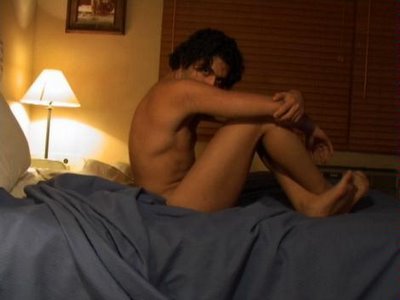 Hundreds if not thousands of people have contracted HIV because they have not been prescribed a preventive treatment, it was claimed today.
Hundreds if not thousands of people have contracted HIV because they have not been prescribed a preventive treatment, it was claimed today.A man who has not been named publicly told the BBC a therapy known as PEP - post-exposure prophylaxis - is not widely available and has not been well publicised.
His claims were rejected by the Department of Health which said there have been information campaigns about PEP and guidelines had been issued recommending the therapy was available to all in need.
The cocktail of drugs costs between £600 and £1,000 and if administered soon after exposure is thought to be highly effective in preventing an individual contracting HIV.
The therapy is given to health professionals who have been accidentally exposed to HIV.
The man, who spoke to BBC Radio 4 Law in Action programme under the pseudonym of Robert, has said he is seeking a judicial review of Government policy on PEP.
He was infected with HIV when a condom broke and unknowingly passed the virus to another man.
He said he only discovered PEP existed several years later and is still furious that he wasn't offered the treatment.
He told Law in Action: "I felt so angry, sick, ill. I still do to this day.
"It makes me so so angry that me and hundreds, if not thousands, of other people have got HIV because PEP wasn't prescribed to us."
A Department of Health statement said it had funded the Terrence Higgins Trust to raise awareness of PEP among gay men.
It said national standards were drawn up in 2003 recommending the drug should be available to all who need it.
It said: "Work by the Terrence Higgins Trust included the national roll-out from June 2005 of a campaign to raise awareness of PEP among gay men.
"The campaign featured targeted advertisements in the gay press and leaflets distributed in gay bars.
"Targeted outreach work in major cities in England was also included in the campaign programme."
Dr Trevor Stammers, an expert on sexual health and vice chairman of the Christian Medical Fellowship, said exposure to HIV was a one-off experience typically for healthcare workers who were able to assess whether there was a serious HIV risk.
This was not the case where people were repeatedly practising unsafe sex, he said.
He said: "I am certainly not saying that sexually exposed individuals to infection should not be given PEP.
"What I am saying is that it is not such a simple matter of equality as those who are advocating supplies are held in every casualty department and given out liberally are saying.
"The analogy with the morning after pill is very interesting. We were promised that was going to solve the problem when it became available over the counter.
"But I predicted five years ago that in fact it would worsen the problem of sexually transmitted infection."
from The Independent
No comments:
Post a Comment